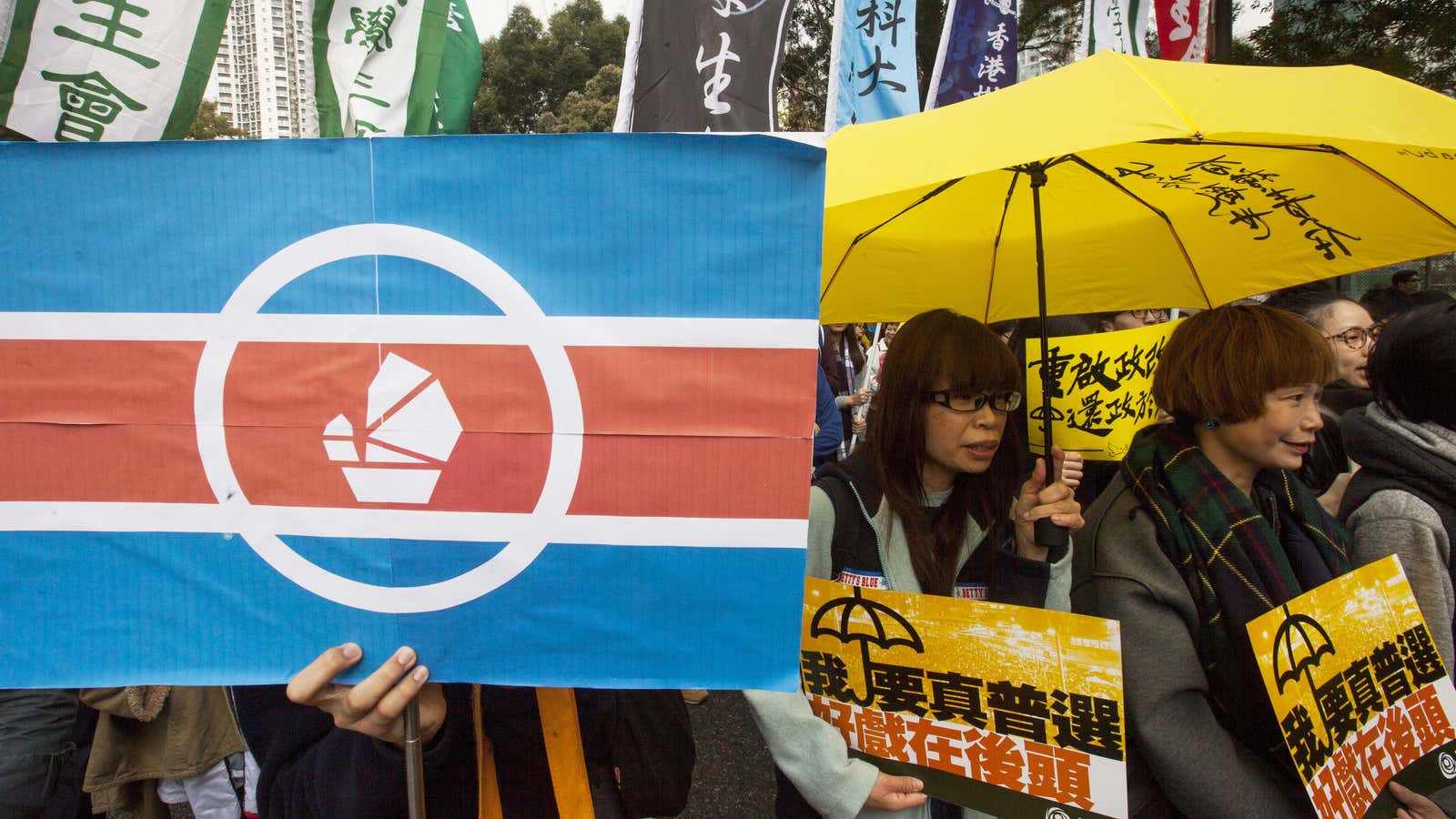Following five years of deep political strife under chief executive Leung Chun-ying, Hong Kong’s new leader will be chosen on March 26 in a head-spinning exercise in indirect voting.
The vote is commonly referred to as an “election,” but only 1,194 people in a city of 7.3 million will cast a vote, each of them representing a particular interest group, most of which are occupational, but political and religious constituencies are also represented. The handful voting this Sunday have been selected by roughly a quarter of a million people, who in turn were drawn from the territory’s nearly four million registered eligible voters. Apart from all that, the victor is widely believed to be a foregone conclusion—Beijing’s favorite candidate, since China must “endorse” the vote.
This year’s candidates for chief executive are Carrie Lam, who was number two in the outgoing administration and is considered the favored candidate; John Tsang, former financial secretary and popular favorite; and Woo Kwok-hing, a retired judge too outspoken against Beijing to stand a chance.
The Election Committee is divided into four sectors—one each for professions and businesses, one for religious, social and labor groups, and one comprised of politicians and local administration groups. The quarter of a million people who chose Sunday’s electors were also divided along sectoral lines.
The number of votes allocated to each sub-sector often makes little sense, since those numbers don’t necessarily hew to their proportion in the overall population. Take the representatives for religious groups: there are 10 representatives each for Christians, Catholics, Buddhists, Confucians, Taoists, and Muslims—yet only 200,000 people (pdf) identify as Muslim in Hong Kong. In contrast, a million people identify as Buddhist, and a similar number say they follow Taoist beliefs.
Other categories are entirely anachronistic, but continue as a way of ensuring that vested interests influence the political process. In a city known for being an international finance hub, where at least a quarter of a million people work in banking, finance and insurance, according to Hong Kong data, only 54 people represent finance, financial services and insurance. Meanwhile, 60 committee members represent the Agriculture and Fisheries Department—even if government statistics show there are less than 21,000 people active in both these industries. All 60 have said that they will vote for Lam.
Hong Kong’s legislature is elected by a similarly complicated but more direct process. Alhough most of the seats are returned by universal suffrage, myriad corporate interests like Israel’s national carrier get a say through a voting bloc known as functional constituencies.
Still, not everyone is upset with these processes. Take, for instance, the chairwoman of the Aberdeen Fisherwomen Association, whose “obscure post gives her unexpected influence,” according to The Economist. She didn’t appear to agree her field was over-represented. “Our contributions, if you ask me, are very big,” Wong For-kam told the magazine. “Because everybody eats fish.”
Voting will take place Sunday morning and 601 votes are needed to win. Official results could be announced as early as midday.
